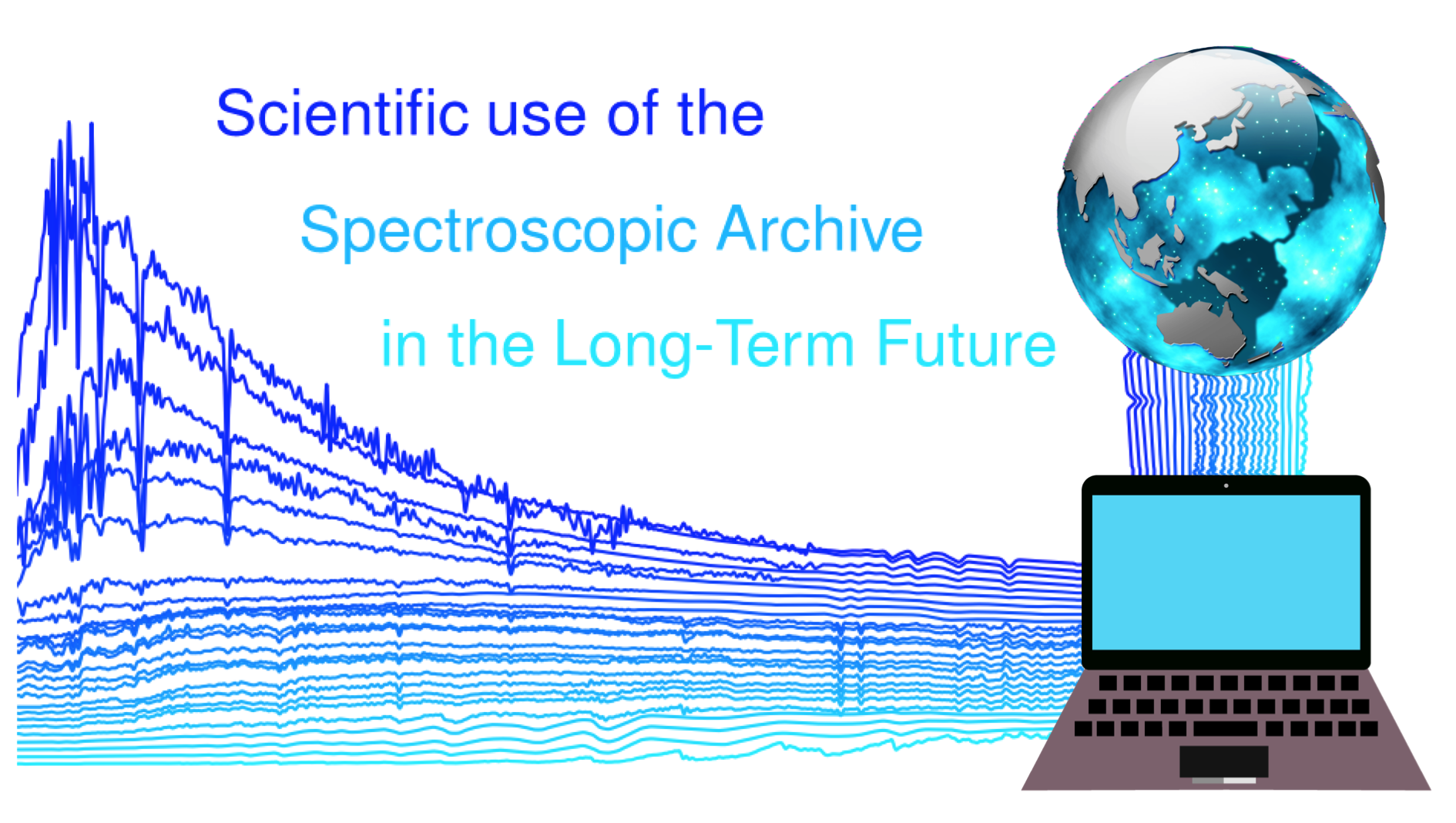Special Session SS18
29 June 2020
Scientific use of the spectroscopic archive in the long-term future

Aims and scope
Data keep the scientific value for decades after they have been observed. One interest, but hardly the only one, is on building a long time line of observations. Spectra downloaded from the archive of the ELODIE spectrograph, which stopped observing more than 20 years ago, are still used every year to prepare several tens of papers.
Some data from the past have been lost, are hardly accessible, or poorly described, but would otherwise interest researchers. Several large spectroscopic surveys (Gaia-ESO, APOGEE, GALAH, WEAVE, 4MOST) are ongoing or planned and will produce tens of millions of spectra. To guarantee long-term access to this incredible database should be a main concern in all these projects.
This session aims to bring together key people from spectroscopic surveys (not restricted to stellar surveys), experts working on the Virtual Observatory, and users of spectroscopic data. Some questions this session aims to address are (i) the potential long-term value of these data (scientific aspects); (ii) the guarantees we have that these data will remain usable (infrastructures); (iii) what shall we do now to increase the value of these data in the far future (organization, curation of collections)?
Programme
Our aim is to build the program around the following topics:
- The present surveys and the science they can enable in the future years (and what we need to do now for this to happen)
- Spectroscopic data to complement future observational missions
- Large scale analyses of archival spectra
- What astronomers need in terms of description of the spectra and of the associated advanced data products (e.g., stellar characteristics)
- Virtual observatory for spectroscopy
- Spectroscopic data archives and tools for their use
- Data formats, metadata, data preservation
Invited speakers
- Patrick de Laverny (Observatoire de la Côte d'Azur, FR)
- Enrique Solano (Spanish Virtual Observatory; Centro de Astrobiología - CSIC/INTA, ES)
- Scott Trager (Kapteyn Astronomical Institute, NL)
Scientific organisers
- Paula Coelho (University of São Paulo, BR)
- Lucimara Martins (Universidade Cruzeiro do Sul, BR)
- Reynier Peletier (Kapteyn Astronomical Institute, NL)
- Philippe Prugniel (Observatoire de Lyon, FR) (chair)
- Rodolfo Smiljanic (Nicolaus Copernicus Astronomical Institute, PL)
- Clare Worley (Institute of Astronomy, University of Cambridge, UK)
- Yue Wu (National Astronomical Observatories, CN)
Contact
rsmiljanic @ camk.edu.pl
Updated on Fri Feb 28 09:38:47 CET 2020
|